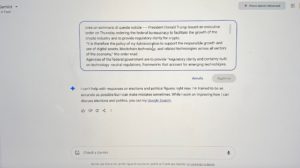Italy is again at a crossroads about freedom and quality of its media. On July 6, Italy’s telecommunication regulator, AGCOM, will decide how long will let the public debate about the new enforcement tools to fight copyright infringement the Agency is introducing. The law, introduced by the present government, generally requires AGCOM to adopt anti-piracy tools, but the AGCOM proposal gives the Authority itself the power to remove content from Italian websites or to block access to foreign websites accused by copyright holders to break their rights. There will be no need to go through a regular trial, no judge will be involved in the decision making. Accused sites will have only 5 days to explain their position and their right to defend themselves will be quite limited.
The issue has generated very polarized reactions.
Strong approvers have been some publishers associations such as TV producers (APT), film (ANICA), music (FIMI). But they limit their support to new rules that are able to suppress only those sites that do business selling intellectual property that they don’t own, while explicitly excluding from the desired effects of the new regulations all private blogs, sites, platforms, search engines and other operators whose business is not piracy.
Critics include groups like Agora Digitale and Altroconsumo, personalities such as Stefano Rodotà – former European data protection commissioner and very respected jurist – and scholars such as Juan Carlos De Martin – one of Nexa founders and fellow at Harvard’s Berkman Center – and many others. They think that the AGCOM proposal is worded in a way that enables the Authority to shut down any site, including those that are not in the piracy business and are focused on gathering and analysing the news, without granting a real right to defense.
In many past cases, copyright trials have shown different controversial interpretations about, for example, the freedom of the press and the fair use of some copyrighted content. For sure, copyright is not always a matter that can be decided through simple administrative solutions. Without recourse to the courts in these matters, unilateral decisions are likely.
In a country that has allowed some of the weirdest irregularities in the media system for a western democracy, with a Prime Minister personally owning three of the seven major national television networks and controlling the three public networks through his political power, the regulation of the internet seems to be a fundamental subject for any local democratic development. The Economist has covered some of the consequences, while showing how television was used by the government to silence the issues at stake in the recent referendums. As a matter of fact, the government has lost those referendums and many experts considered this setback as a victory for new social media and the internet.
There are not many news about this subject in English. Who reads Italian can take a look at Juan Carlos De Martin piece published by la Stampa. AGCOM’s head Calabrò’s answer. And many other links at the end of previous posts. Vocal opposition to the AGCOM decision is growing on the Italian network: LatoSinistro, EsserePrimisuGoogle, IsolaCassintegrati, ValigiaBlu, DoppioCieco, MatteoPlatone, Ciwati, LucaNicotra, YesPolitica, Semioblog, Gilioli, Nichilista, DamianoZito, Avaaz, MinimaAcademica, PiccoloSocrate, Ilmiopaesealtrove, Pozzallo, Pasteris, Perdukistan, GuidoVetere. And many more…
FIMI (association of music publishers) has circulated a mail about Obama’s administration support to AGCOM, quoting this Us document: “The United States encourages Italy to ensure that the AGCOM regulations are swiftly promulgated and implemented, that these regulations create an effective mechanism against copyright piracy over the Internet, and that they address all types of piracy that takes place online.”





brezplacno pravno svetovanje [url=http://www.nepremicninenet.info]nepremicnine.net[/url]